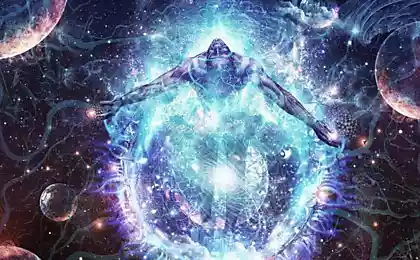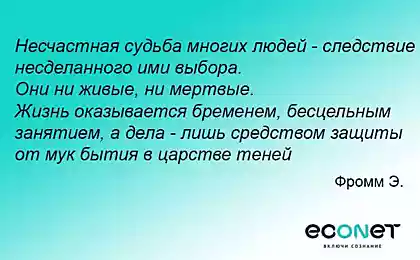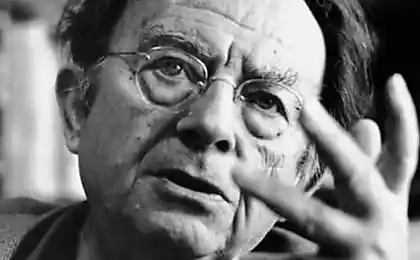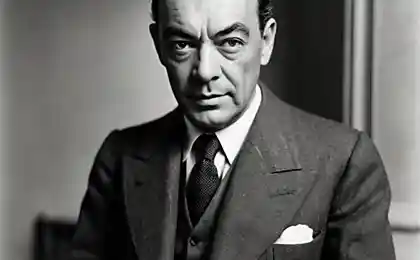293
Erich Fromm: The fate of people is a consequence of their unmade choice.
Description: The article discusses Erich Fromm’s idea that many misfortunes in human life are due to our unwillingness or inability to make conscious choices. 30 quotes of the philosopher and psychologist, which illustrate his views on freedom, love, responsibility and self-awareness. The article is designed to inspire a deeper understanding of your own life and motivate personal growth.

Introduction
The world of ideas of Erich Fromm largely determined the development of philosophical and psychological thought in the XX century. His writings on human freedom, love, awareness and social justice continue to inspire researchers and ordinary readers even today. One of Fromm’s most important ideas is that people are often unhappy not so much because of the circumstances of life as because of their own decisions – or rather, because of their absence. According to Fromm, we are always at the point of choice, but often do not want to take responsibility for this act, allowing external forces or internal fears to control our actions.
In this article, we will look at the key ideas of the great philosopher, understand why he considered freedom of choice one of the basic criteria for a happy and fulfilling life, and give 30 quotes from Erich Fromm, which can serve as a source of inspiration. The texts left by Fromm reflected his unique view of a combination of humanistic psychology, existential philosophy and social criticism. Understanding this depth is important for anyone who wants to live consciously, overcoming fears and illusions about themselves.
Main part
1. A brief sketch of the biography of Erich Fromm
Erich Fromm (1900–1980) was a German philosopher, psychologist and sociologist whose ideas had a significant impact on humanistic psychology and existentialism. Born in Frankfurt am Main in the family of a religious winemaker. At a young age, he became interested in psychology and philosophy, studied the works of Freud, as well as existentialist philosophers. According to Wikipedia, Fromm later became one of the key representatives of the Frankfurt School.
Fleeing the Nazi regime, he emigrated to the United States, where he continued his scientific work, taught at several universities, and studied psychoanalysis. As early as 1941, his famous book, Escape from Freedom, was published, in which Fromm considered the reasons why people give up independence and give preference to authoritarian structures. Later, other influential works followed – “The Art of Loving”, “Man for Himself”, “The Anatomy of Human Destructiveness”. Fromm emphasizes the importance of freedom, responsibility and love as the driving forces of the evolution of the human personality.
2. Misfortune is the result of a man’s unmade choice.
One of Fromm’s key theses is the assertion that human unhappiness often arises from an undecided or unmade choice. At first glance, this may seem paradoxical, because traditionally we think that suffering is associated with material failure, illness or betrayal of loved ones. However, Fromm emphasizes that an inner sense of hopelessness and dissatisfaction is formed when a person does not realize his inner needs and does not seek true freedom.
Why do we run away from freedom and avoid making decisions?
- Fear of loneliness. When we take responsibility, we risk being left without the support of an environment that disagrees with our path.
- The desire to maintain comfort. Decision-making is often associated with the risk and need to change life, which is alarming.
- Social pressure. Many people simply follow social norms and patterns, believing that this will save them from the difficulties of choice.
According to Fromm, it is in confrontation with our fears that we gain real freedom, and therefore the opportunity to form an authentic personality. The price of avoiding choice is a feeling of emptiness, meaninglessness and unrealization.

3. Love, freedom and responsibility
Man, according to Fromm, is a creature simultaneously biological, social and spiritual. We seek love, recognition and security. But love cannot be true unless one is free to make his own choices. This means that a deep and meaningful relationship can only be achieved when both parties are consciously choosing to create and develop love rather than being “locked” to each other.
In his famous book The Art of Loving, Fromm points out that love is primarily an act of will, not just an emotional state. Without freedom and responsibility, any "love" becomes an addiction or an immature attraction, which is easily destroyed by the first difficulties. In addition, Fromm saw love as an engine of interpersonal growth: being sincere in their choices, people discover new facets of understanding and empathy.
4. 30 Quotes by Erich Fromm
Below are 30 quotes that reflect Fromm’s core ideas about freedom, love, responsibility, and the nature of human existence:
- Freedom is not the absence of obligation, but the ability to choose and take responsibility for your choices.
- “Man is the result of his own choices; every act we do creates us anew.”
- The fear of freedom is associated with the fear of being yourself.
- “Love cannot live where there is no respect for the person of another.”
- “A man who does not know how to love will always seek submission or suppression.”
- “Escape from loneliness takes us further and further from true self-understanding.”
- “True love begins to live when the desire to possess ceases.”
- “The conviction that nothing changes is the surest way for nothing to change.”
- “We must become what we can become, otherwise we will never find peace.”
- The fear of responsibility is born out of our habit of believing that someone more powerful will take all the decisions.
- “In consumer culture, a person becomes a commodity judged by his ability to conform to standards.”
- To love is to be actively interested in the life and development of another person.
- The main problem of man is to learn to go beyond his own self-centeredness.
- In a consumer society, we often confuse true freedom with the ability to choose from pre-imposed options.
- When we avoid pain, we often avoid joy, because both involve growth.
- Creativity is the continuous act of giving birth to oneself, freeing oneself from patterns and stereotypes.
- Mature love says, “I’m happy with you because I choose to be with you.”
- Alienation is a state in which a person ceases to be himself and becomes a stranger to himself.
- When a man is freed from illusions, he acquires the courage to have his own opinion.
- Our happiness is not a gift of fate, but the result of effort and willingness to take risks.
- The meaning of life cannot be found in books; it is created by our actions and decisions.
- The inability to love is the deepest form of loneliness.
- “A free man is not afraid to make mistakes because he sees mistakes as opportunities to learn.”
- Our culture tells us that we have more value than we are.
- To get a taste of life, you need to go beyond your comfort zone.
- If a person does not develop, he regresses - in the nature of consciousness there is no static state.
- “A society where there is no room for doubt becomes a herd following a leader.”
- Freedom without responsibility is dangerous, responsibility without freedom is absurd.
- Love is not an object of consumption, but a skill that requires constant work on oneself.
- Every day is an invitation to make a new choice.
These statements demonstrate the versatility of Fromm’s philosophy and his incessant appeal to man: to become a conscious creator of his destiny.

5. Practical tips: how to apply Fromm's ideas in life
So fromm's key thesis is that we are unhappy when we shy away from choice. But how can these ideas be put into practice?
- Ask yourself questions. Before making a decision, ask, “Am I doing this out of fear or out of a desire to develop?” This approach helps to identify the true motives.
- Learning to take responsibility. Teach yourself not to blame circumstances, other people, or “accidents.” Try to analyze what role you played in the current situation.
- Develop empathy skills. Looking at the life of another person, we understand that we ourselves have the right to an individual path. Empathy strengthens the ability to make informed choices.
- Maintaining critical thinking. In the modern world, there is a great temptation to think in patterns and go with the flow. Try to question your own beliefs and accepted norms.
- Practice “conscious presence”. Meditation, diary entries, walking alone – all this develops the ability to notice internal processes and “catch” the moment of decision-making.
Such practices help us realize that life is not a script written somewhere in advance, but a space of possibilities from which we choose our future every time.
Conclusion
Erich Fromm left behind a rich intellectual heritage that can inspire and shape a new vision of life. His conviction that people are unhappy primarily because of missed opportunities and unconscious decisions is intended to remind us of the importance of freedom of choice and personal responsibility. The philosopher insisted that true happiness is impossible without love, which in itself requires courage and willingness to take risks, as well as a willingness to “go beyond” the usual.
Choice is a kind of “creative act” of man in relation to his own destiny. Although we are not always ready to accept the consequences of this step, the alternative of living life under the weight of passivity and conformity will not bring inner joy. Should you avoid taking risks for years to avoid making mistakes? Fromm’s point of view, it is error that is sometimes more valuable than inaction, for it teaches us to understand ourselves more deeply and makes the path to true freedom real.
Acquaintance with Fromm’s philosophy, as well as working on your fears, doubts and unaccepted decisions, help you gain a fresh look at the familiar world. Ultimately, the ecology of consciousness is not only social or environmental values, but also the ability of a person to “clean” his inner world from unnecessary restrictions and stereotypes, bringing awareness, courage and openness to new experiences.
Glossary
- Humanistic psychologydirection in psychology, focusing on personal growth, freedom of choice and self-realization of a person.
- ExistentialismA philosophical movement that focuses on individual freedom, responsibility and the search for meaning in human existence.
- Frankfurt SchoolA group of philosophers and sociologists, formed at the Frankfurt Institute for Social Research (Germany), focused on criticism of society and culture.
- PsychoanalysisA method based on the works of Sigmund Freud, which studies unconscious processes that affect human behavior and psyche.
- Authentic identityA person who lives according to his or her true needs and values, not imposed from outside.
- Empathy.The ability to understand and share the feelings of another person, to put yourself in his place.
- DependenceA psychological condition in which a person cannot function independently by relying on external objects or people.
- Ecology of consciousnessA metaphorical expression indicating the “purity” and harmony of the inner world of a person, including his relationship to himself and the surrounding reality.























